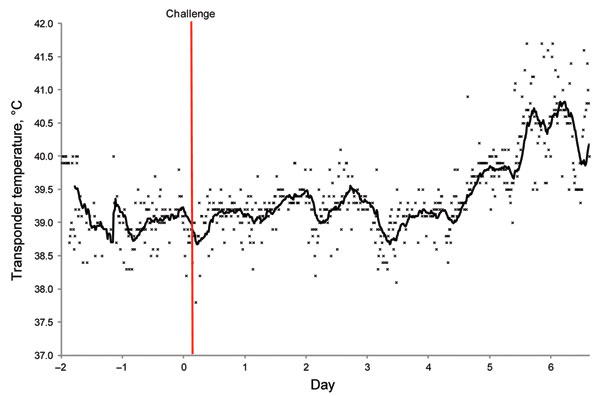Volume 17, Number 12—December 2011
Research
Experimental Infection of Horses with Hendra Virus/Australia/Horse/2008/Redlands
Figure 1

Figure 1. Temperature transponder data for horse 1 during experimental infection with Hendra virus, Australia. Before viral challenge, each mare was fitted with an intrauterine (transcervical) temperature transponder to allow continuous recording of core body temperature. Temperature was measured every 15 minutes in each horse. Solid line represents the moving average based on 20 temperature readings.
Page created: December 01, 2011
Page updated: December 01, 2011
Page reviewed: December 01, 2011
The conclusions, findings, and opinions expressed by authors contributing to this journal do not necessarily reflect the official position of the U.S. Department of Health and Human Services, the Public Health Service, the Centers for Disease Control and Prevention, or the authors' affiliated institutions. Use of trade names is for identification only and does not imply endorsement by any of the groups named above.